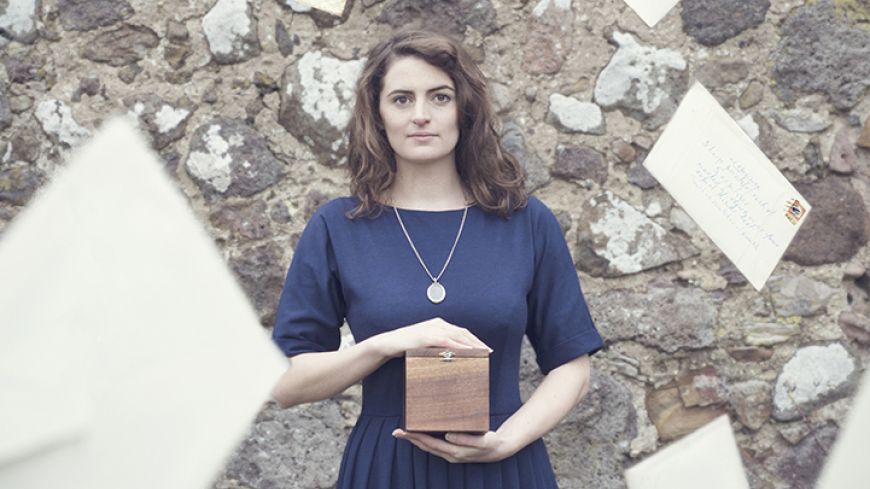
A personal journey of discovery round WWI Dundee.
Australian born theatre maker Alice Mary Cooper paces the whited taped space, a self -created ‘box’ containing the simple props she uses to tell the tale of the very special eponymous box. This shrine, as she often refers to it, is a time capsule created in 1921 by a group of Dundee postal workers to commemorate the First World War and its impact on their city through papers and letters. The casket was found by local historian Janice Kennedy, whose grandfather was a Dundee postman, while researching her family history and the contents were revealed in 2014 at the centenary of the start of WWI.
From the dimming of the house lights when Cooper steps forward and greets the audience with open warmth, her grace and beautifully expressive hands are evident. Her latest work is the product of meticulous research and manifests in the form of an animated lecture involving storytelling with props. Had it been advertised as such, it could be regarded as entertaining but as it stands, it doesn’t come to anything much beyond that.
The contents of the box may have been revelatory to in her own words ‘ a wee Aussie lassie’, and of course is mightily important to the guid folk of Dundee, but the simplistic spelling out made it feel like a history lesson for children rather than a piece of theatre for adults.
About 20 minutes in, Cooper indicates a shift in style that would make it more theatrical. From the massive amount of information stored in the capsule, represented by several boxes on stage, she chooses four characters, each represented by a piece of clothing - a handbag, a pair of boots and army shirt and a hat - but apart from her version of her black brimmed cloche Lady Baxter, she fails to characterise them with enough distinction. The drama lies in the lives whose stories lie in the capsule but is sadly missing from this piece.
With an air of sanctity, Cooper asks the audience if she should open the box, probably innocent to the fact that the question could induce irreverent thoughts of the old TV programme Double Your Money with much of the audience, then at the end closes it with suitable solemnity. It is hard to fault the precision of Cooper’s respectful delivery of this small piece of Scottish history but ultimately it feels soulless.
Friday 6 November 7.30pm

